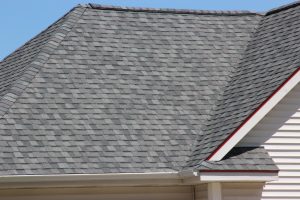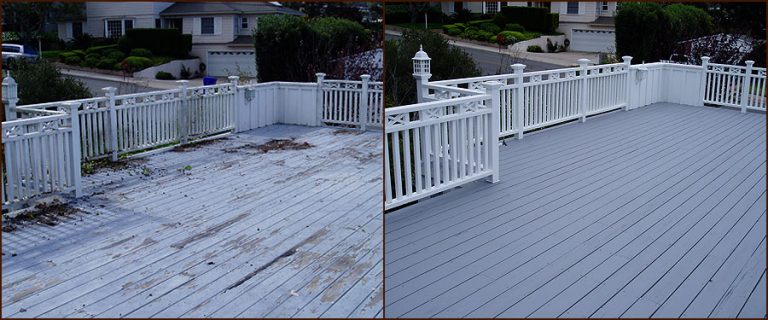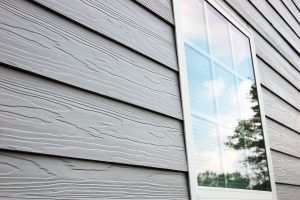10 Repair Items To Focus On Before Selling Your Home
By Kurt Real Estate Nov 23, 2019

Over the years, your home, like every home, has likely accumulated some wear and tear. If you’ve had thoughts of selling, or if you’ve already decided that it’s the right time to sell your home, taking the time to make necessary repairs before your home hits the market could have a potentially huge impact on the final sales price.
According to a Maritz Research poll, 63% of home buyers surveyed responded that they would pay more for a move-in ready home.
Now, move-in ready doesn’t necessarily mean fully updated. Not every buyer needs to have a fully modern and updated home, nor should you feel the need to fully renovate your house and bring it up to date just because you need to sell it.
But where do you start? And then, what things are even worth fixing for a maximum return on investment?
Here are the 10 most important items or areas to get you started when making pre-market repairs.
Roofing
A roof that’s in questionable condition is a huge drawback for any buyer. Evidence of leaking, missing shingles, roof moss, and holes from old weather veins or antennas should be taken care of right away. A minor problem could turn into a huge (and very expensive) problem if the right storm came along.
A new roof altogether is actually a good investment in itself. According to HomeAdvisors.com, “the average cost of a new roof comes in at $7,500, and the boost to value resulting from the new roof comes in even higher: at $8,150, or 109% of the original investment.”
2. Gutters/Drainage
When it comes to drainage, a home inspector is going to look for how well your home drains water away from its foundation. If you’re unsure of how well your gutter system would function in this regard, carefully inspect the flow of water the next time it rains. Or, if you don’t want to wait for the next downpour, you can use your garden hose to simulate a storm and observe just how much water your drainage system can handle.
Be sure to replace any missing or rusted gutters, downspouts, and splash blocks. Also note the presence of any pooling water in your yard or side of the property and how that might be remedied.
3. Windows and Screens
Upgrading to newer, energy-efficient windows is always a very attractive feature for prospective buyers, and will do wonders to refresh and update your home. If replacing windows isn’t in your budget, you should at least make sure they are sealed properly to prevent leaking and that they open and close properly in their frame.

Old, dirty, and damaged screens are an eyesore and a real turnoff for buyers, so you’ll want to consider repairing or replacing them altogether before your home hits the market. In a lot of cases, they’re usually not very expensive if you don’t mind doing some due diligence and call around for multiple bids.
4. Wall Repairs
If an inspector doesn’t catch it on their report, chances are, a buyer will spot any damage or discoloration to your walls. This means holes of any size should be filled (if you love spackling, this part will be fun), and any texturing or painting should be taken care of as well.
Prior to your home hitting the market, thoroughly examine every part of your walls. Be real nitpicky about it, like a buyer might. You’d be surprised at how much touching up or minor patching needs to be done, but it’s all very minor cosmetic work most of the time.
5. Kitchen/Bathrooms
Make sure all cabinets open and close smoothly and correctly. Installing slam-proof hinges on the cabinets and slides in the drawers is a nice feature to consider as well. For older looking cabinets and drawers, a quick coat of white or even dark-colored paint can do wonders along with new hardware for a relatively small investment.

Consider replacing cracked or missing tiles from the countertops and flooring. Cleaning the grout or regrouting can make a big difference in your bathrooms’ presentation too. Be sure to check for any broken sealant along the toilet and shower/bathtub. And of course, all the plumbing should be in working order.
6. Porches/Decks
The most common repair item with a deck or porch is missing or damaged boards. Dry rot is potentially a concern, depending on how well the structure has been maintained. Safety is the highest concern for an inspector when examining a deck or porch, so make sure that any stairs and safety rails are still secure and intact.
Also, painting or staining will go a long way in giving any deck a much-needed facelift and is well worth the investment to improve its appearance. Depending on what style you’re going for, you may favor one option over the other.

Important note: any replacement boards must be suited for outdoor use. I’ve seen deck additions or replacement flooring done with interior-grade material, which was easily damaged once exposed to the elements.
7. Paint
Arguably, paint is the easiest item on this list to take care of. Any chipped or scratched paint to the interior or exterior can be fixed relatively quickly and easily. Prior to 1978, lead-based paint was the standard, so you’ll need to disclose if you are aware of any on the property.

If you’re considering repainting, stick to colors that will appeal to the widest range of people, like mild earth tones and sophisticated, light grays. A fresh coat of paint will also reduce any odors from smoke or pets, and can revitalize any room for a relatively small amount.
8. Siding
Exposed wood, chipping, and bubbling paint are among the most commonly noted items on any inspection report, so be sure to keep an eye out. Also, an inspector will also want to make sure that any foliage is six inches away from the bottom of the siding with no earth-to-wood contact.

9. Flooring
Natural hardwood floors always leave a lasting impression on home buyers. If you’ve been considering replacing your flooring and you’ve got the money to spend, natural hardwood floors are the way to go. Not only are they gorgeous, but depending on the type of wood, it can add serious value to your home as well.
However, laminate floors are a great way to go as well. While not as costly as natural wood, they still look beautiful and are much more durable and easier to clean.
If you have natural hardwood floors, most wear and tear like small scratches, scuffs, and scrapes can usually be removed with a hardwood repair kit. Any serious issues like water damage or warping might need to be addressed by a professional. And any missing boards, cracked or missing tile, and non-sealed flooring near plumbing should be remedied.

10. Foundation/Crawlspace
While a buyer may not pay close attention to your home’s foundation right away, a home inspector certainly will. Any large cracks, sloping floors, and evidence of water in any crawlspaces will certainly draw his or her attention.
If you believe you have any foundation issues, it’s best to consult with a licensed contractor. Besides, if you’re like most homeowners, that kind of work is well above your pay-grade anyways. Any questions relating to your property’s foundation are a sure way to kill any deal, and you don’t want a bombshell like that dropping right in the middle of escrow.
Other Repairs To Consider
The most important repairs to make are ones relating to safety. Functioning smoke and carbon monoxide detectors must be installed in all the appropriate areas, exposed wires must be capped, all fixtures must be testable, and the circuit box must be covered with all switches in place.
As handy as you may be, any major repairs or installations should be completed by a licensed contractor. If any issues arise down the road regarding those items that were repaired, you will definitely want the liability to be on the company or contractor that performed the work and not yourself personally.
While this list is not exhaustive, it should give you a good start on where to focus your time and money. You won’t be able to spot everything that needs repair, but you should be able to complete some of the obvious repairs before your home hits the market. By completing repairs ahead of time, you’ll ultimately save yourself a lot of time, and potentially a lot of money as well during the escrow process. Not only will you not feel rushed to complete any repairs, but you’ll also be presenting your home as a complete product to the new buyer, which will ultimately increase the value in their eyes.
Join our network
Keep up to date with the latest market trends and opportunities in Orange County.



